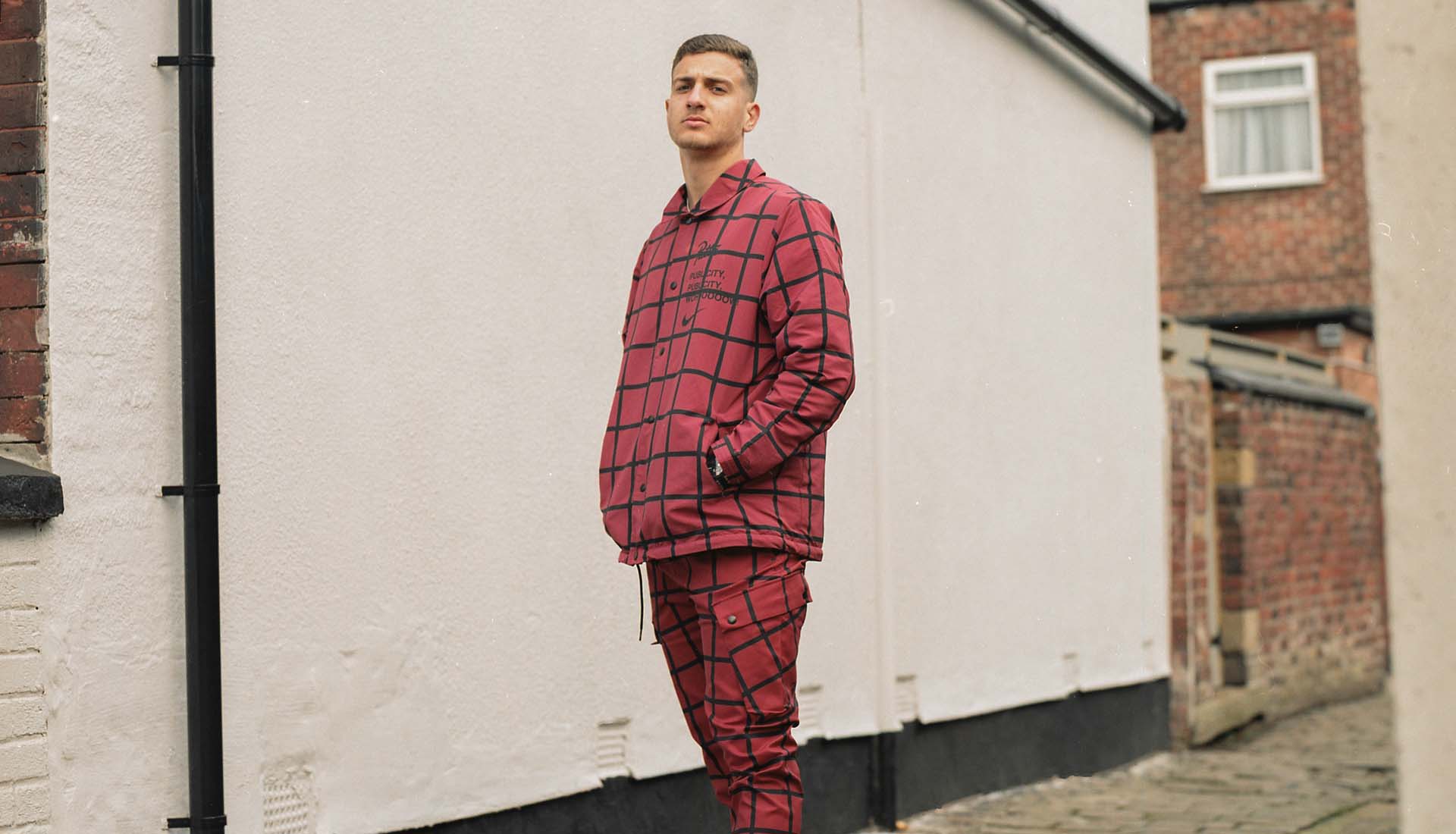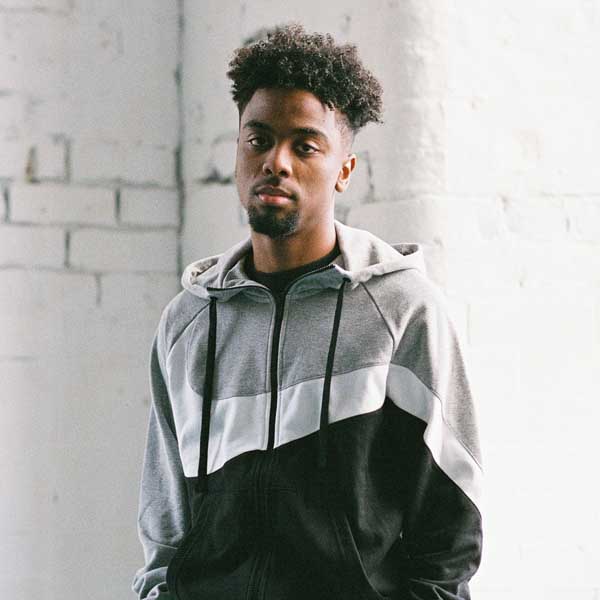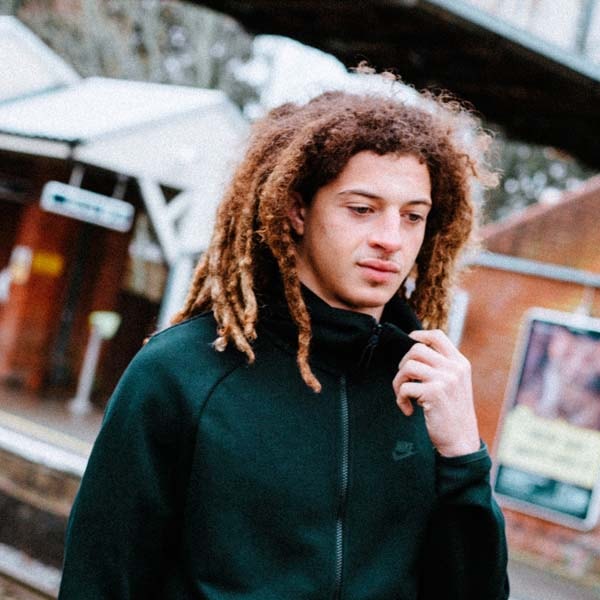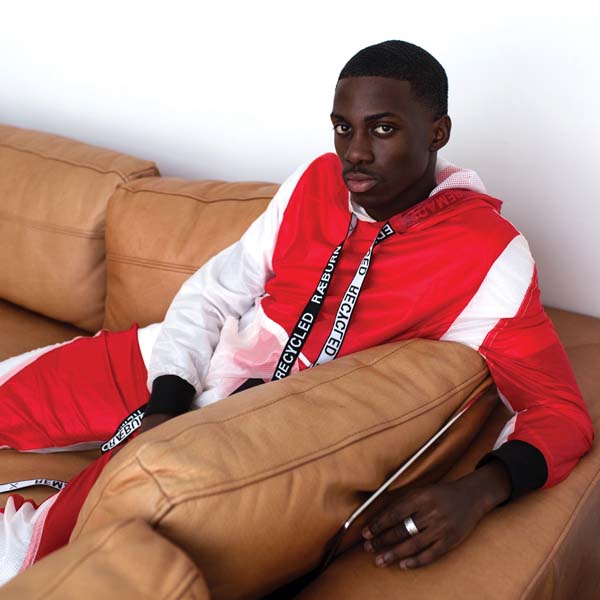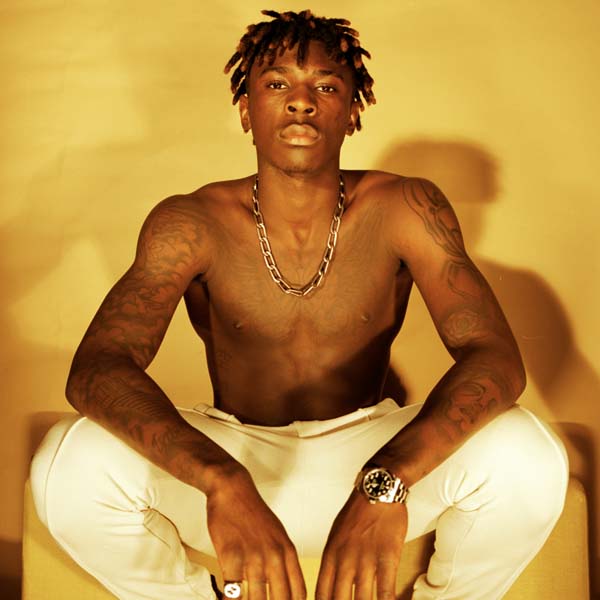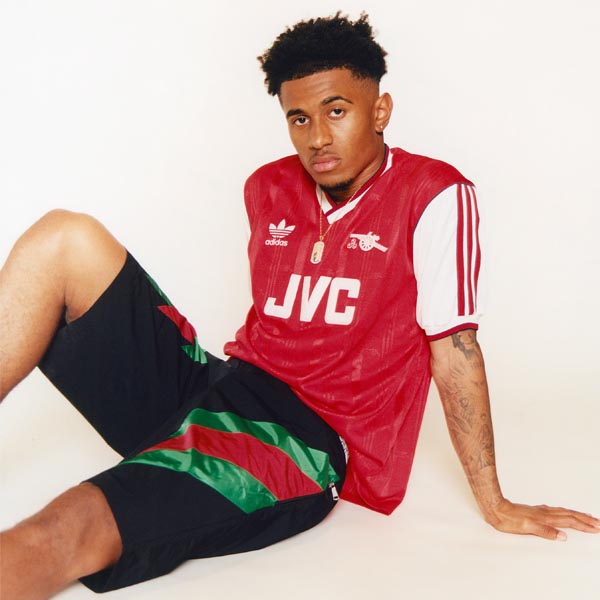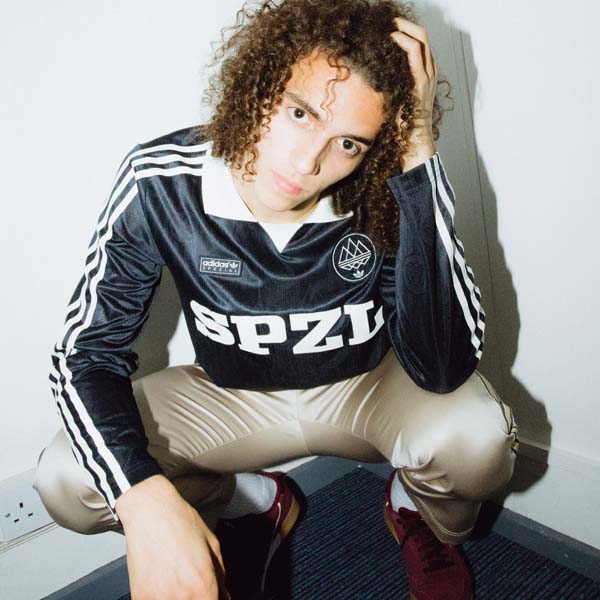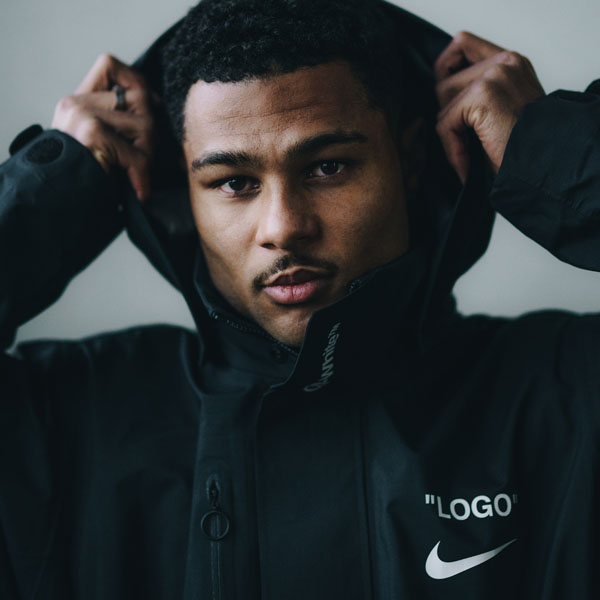In youth football, coaches often talk about the “sink or swim” moment, when a promising young player is given the chance to perform on the biggest stage of their life so far, the pressure ratcheted up to levels beyond anything they’ve experienced before. For 19-year-old Diogo Dalot, that moment has arrived.
Having made his big-money move to Manchester United last summer carrying an injury, the former Porto full back’s first few months at Old Trafford threw up more than their fair share of challenges. One injury followed another, appearances were limited, and although he impressed when he did get on the pitch, United’s collective travails were such that the man who signed him, compatriot Jose Mourinho, was sacked.
Now, playing under a boss whose belief in young talent stems from years spent being tutored in the club’s traditions by its greatest ever manager, Portugal’s latest prodigy is determined to follow in the footsteps of another United icon – guess who – and make the Premier League his home.
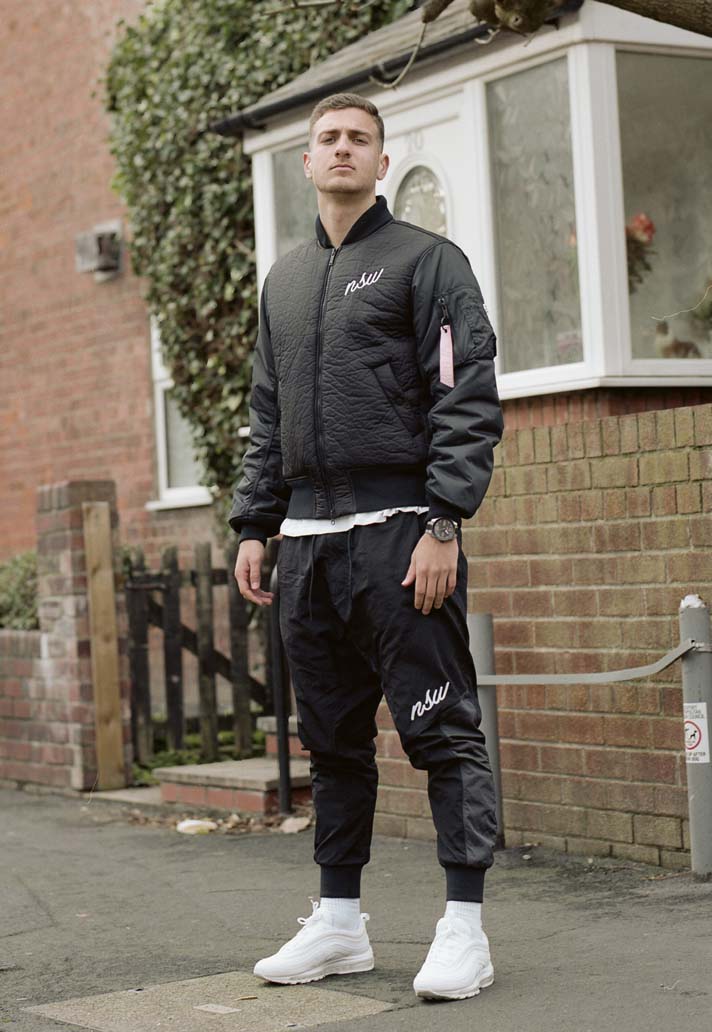

Diogo, how have you found it adapting to the UK? What are the main differences you’ve noticed?
I think the passion, the way they live football here, the way they feel football here. That passion and that desire to come to the game. Full stadiums. For me it’s unbelievable. When you have the opportunity to play in places like that, such as Old Trafford, it’s amazing.
What went through your head when you first heard the name “Manchester United” connected to yours?
When you receive news like that, you just think “Woah, okay, that’s for me?” I played in the best team in Portugal. It’s a good league, and we played Champions League – I think when you have that kind of experience, you’re a little bit closer to playing in the big leagues.
When you join a new club like Man United, is it a bit like starting a new school?
Yes. It was a new cycle, a new life. Because you come here, and you start living so many differences between what I had in Portugal and what I have here. It’s a different world completely. For me it was a new beginning. Of course I take everything I learned in Portugal and Porto, and that helped me so much to be in this position, and then just keep working and keep growing.
Do you have to win over your new teammates? You must want them to like you...
Of course when you walk into a new team, you want to stay good with everyone, and be a nice colleague too, but I think we just have to try to be ourselves, and not try to fake something, or try to be someone else. Because at the end of the day, I’m just me. I try to be me, and I think I did a good job. I think everyone knows who I am, and I think I’m a good colleague, yeah.
Were there any players who were particularly good at welcoming you in?
Yeah, most of [them]. There were some who don’t talk too much, or just [have] different personalities, but most were very good. I think it was a good adaptation, because I have Portuguese players, Portuguese staff, the coach was Portuguese, I had Brazilian guys. So for me it was not difficult. And I think I speak good English, so the English guys didn’t have that kind of distance to me; they can be close to me because I can speak with them.
When did you start learning English?
In school. In Portugal we start learning English at the age of seven, eight, nine, 10, and from there on. And that’s it. And television. [Laughs]
Are there times in the changing room where it’s like “You’ve got to watch this”?
Yeah, always. Or there’s a new game that’s released and we need to play it, everyone, multiplayer. Or there’s a movie on Netflix. The most recent one was Bird Box. Everyone is talking about Bird Box. It’s a normal changing room. Sometimes people think that a changing room in a club like this is different, or we don’t talk to each other, we just focus. Of course we focus, but we need to chill, and stay fun. It’s a very good dressing room.
What are the differences when it comes to music tastes?
Here in England I start listening to more rap, more Lil Baby. Jesse likes Lil Baby, so all day Lil Baby. We have a couple of DJs. Ash too – Ash is more electronic music before the games, so it’s nice. We have Spanish guys, we have different cultures, and I listen to [all] of them.
What were you listening to in Portugal?
We have some good music in Portugal. Of course, when you’re a singer in Portugal you don’t have the dimension that you have in America, but I think we have so much good music. We have a type of song we call fado. It’s a lyrical song. Amazing. Only in Portugal. It’s fantastic. I like that.
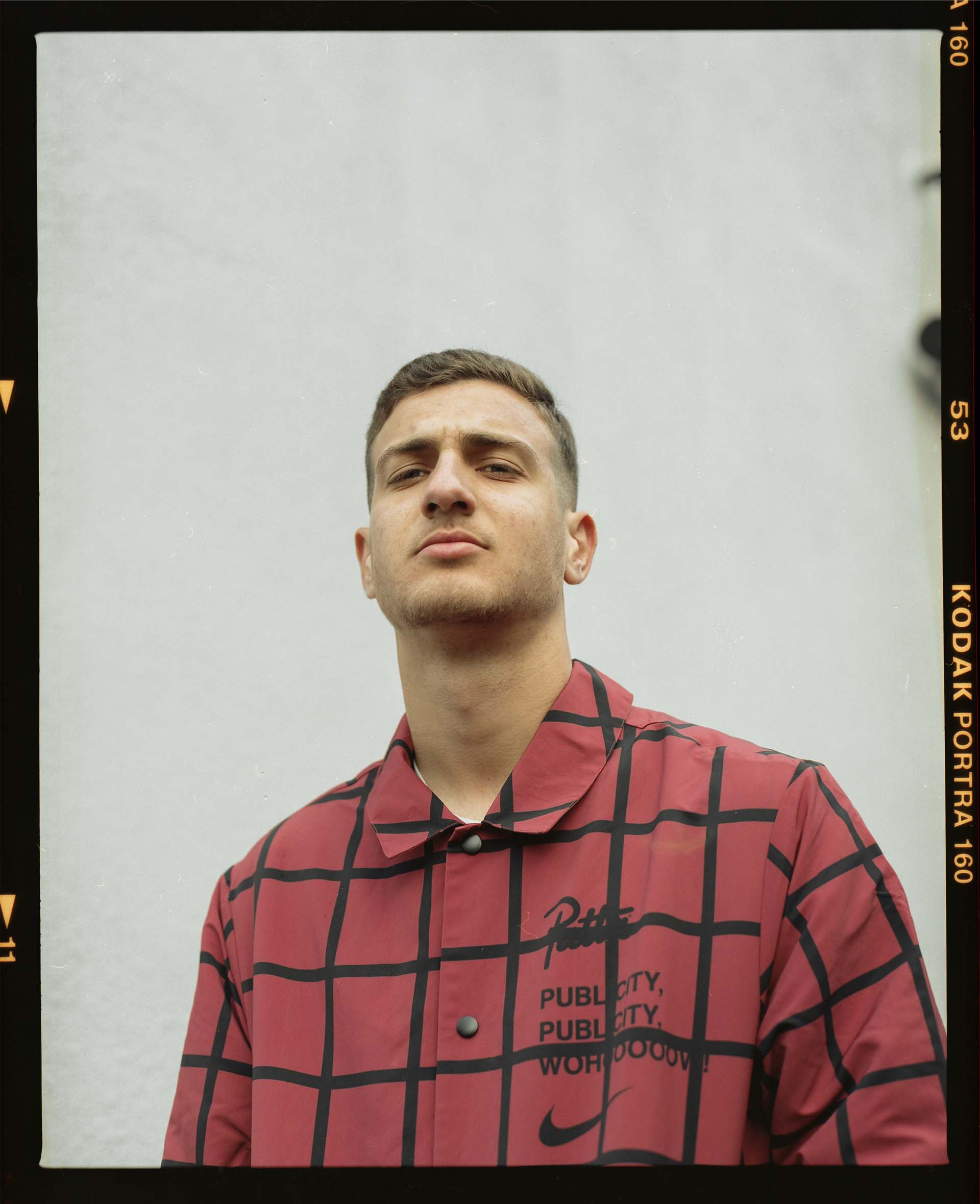
How would you describe your personality?
I’m just a normal guy. I try to keep humble, try to know that I’m just starting. I’m 19 years old, I’m not a made football player yet, and I need to grow up. I need to learn, to make mistakes and learn from them. I’m just starting. I played for a big club [in Porto], and now I’m in the best club in the world, so I need to know that, to work, and to be ready for it.
What was your football upbringing like?
I started playing football when I was five, six years old, in a small team in my hometown [Braga]. Then after two years I went to Porto, and I played 10 years in Porto. But football was my only passion. I had this dream, I wanted so bad to be here, and that was the main goal for me.
Who were your inspirations when you were growing up?
My answer will be a little bit shocking for everyone. [Laughs] No, I think it’s Ronaldo, for me was the main one. He was my idol since day one. Not because he’s Portuguese, or his style of playing, but for his hard work. When you think of an athlete, a complete athlete, a complete footballer, you need to choose Cristiano. For me, he was the main example to start playing football and, not to be like him because I want to do my own path, but to get to know [him] and see how he works is unbelievable.
From the outside, football looks like a nice life. But how hard do you have to work to make it to the top?
Of course it’s hard to get to a big team. But then it’s harder to stay there. Because you are competing with a lot of footballers that are such hard workers. When you get to the big clubs, to the big leagues, you know that every day you need to get better and better and better. For me, I think the hard work is the main thing. Work hard and stay humble.
What kind of sacrifices do you think you’ve had to make along the way?
Ah, very [many]. Very [many] because, like I said, with all the humbleness, at 19 years old, to be here is not easy. To be in a team like Manchester with 19 years old is not easy. You need to make a lot of sacrifices. Sometimes you need to say no to your friends, to your family, because you need to rest, or you need to sleep. You can’t go out with your friends because you have a game or training the day after. But in my head, I’m always thinking that someday it will be worth it. And I think I have that prize right now.
Fast forward to stepping out on the pitch at Old Trafford for the first time. How ready for that moment do you think you were?
I was not nervous. I was focused. You know you have that little anxiety before the game, and when you walk up. I was thinking to myself, “Okay, you’re here, now you need to play”. You don’t have to be afraid, you just need to be focused and then you need to show yourself, show the people why you’re here. It was the biggest moment for me so far, walking on the pitch. You know, you play PlayStation when you’re 10 years old and you see Old Trafford, and you dream one day to play there. It was a big moment.
Do you feel that with each game you get a little bit more experience, a little bit more confidence?
Not just each game, each day. I have a difficult season so far because I have two injuries. I never get injuries – those are my two big injuries [in my career]. I had a surgery on my knee, I stopped for four months, then I came back, played one month, and then I had an injury again. It was very good learning for me this season so far, and now I’m starting to get fit again and hopefully I can end the season very well – and playing, that’s the main thing.
As soon as you become a Man United player, the spotlight comes on you with another level of intensity. Did you feel that?
Yeah, I felt it. Most of all was on social media. You blow up, and you need to be prepared for that. That’s not the main goal: the main goal is to train every day, to play, and to be with your family. But that is the other side of football, and of course it’s important for your image and for the brand.
What goes through your head when you think about ambitions for the future?
I don’t like to think too big for now. I used to say “step by step”. Now I just try to focus on getting my opportunities and getting my minutes, and showing the manager what I’m capable of, that I can play here. Of course, when you lay down on your bed and you dream of the future, you dream of being one of the best right backs in the world, being a reference for everyone. But that’s when you are in bed. When you wake up, you just need to put your feet on the ground and start working again, because every day is a fight for me. I think that’s the right way.
What’s it been like going through a change of manager? That’s quite a big thing to deal with straight away.
It was my first experience of that. Like I said, every day in this club, it’s been a learning experience for me. It’s football. You need to be prepared for a change of manager, change of everything. Because you live day by day, you cannot live another way.
Does it help to see someone like Solskjaer come in as manager? Someone that you may have seen when you were younger?
Yes, it’s a big reference for the club, and when you have the opportunity to work with someone who knows the club and knows the fans, knows everything, it’s amazing. Someone who was a football player too and knows how we think. It’s been great to work with him, and I’m looking forward to more.
Who was your team growing up? Who did you support?
Porto, of course. I am a big fan of my club, Porto, and then of course you grow up seeing the big clubs. I was particularly watching United because of Cristiano. I’m not going to lie to you and say that United was my team, but it became my team because of Cristiano. I fell in love with this club, with these fans, because I was focused on seeing United. Getting to the weekends, United’s going to play, Ronaldo’s going to play, so I’m going to watch that. I have two or three football shirts with Cristiano [on the back] from that time. Of course I have other clubs too, but like I said, since day one, United was a big club for me.
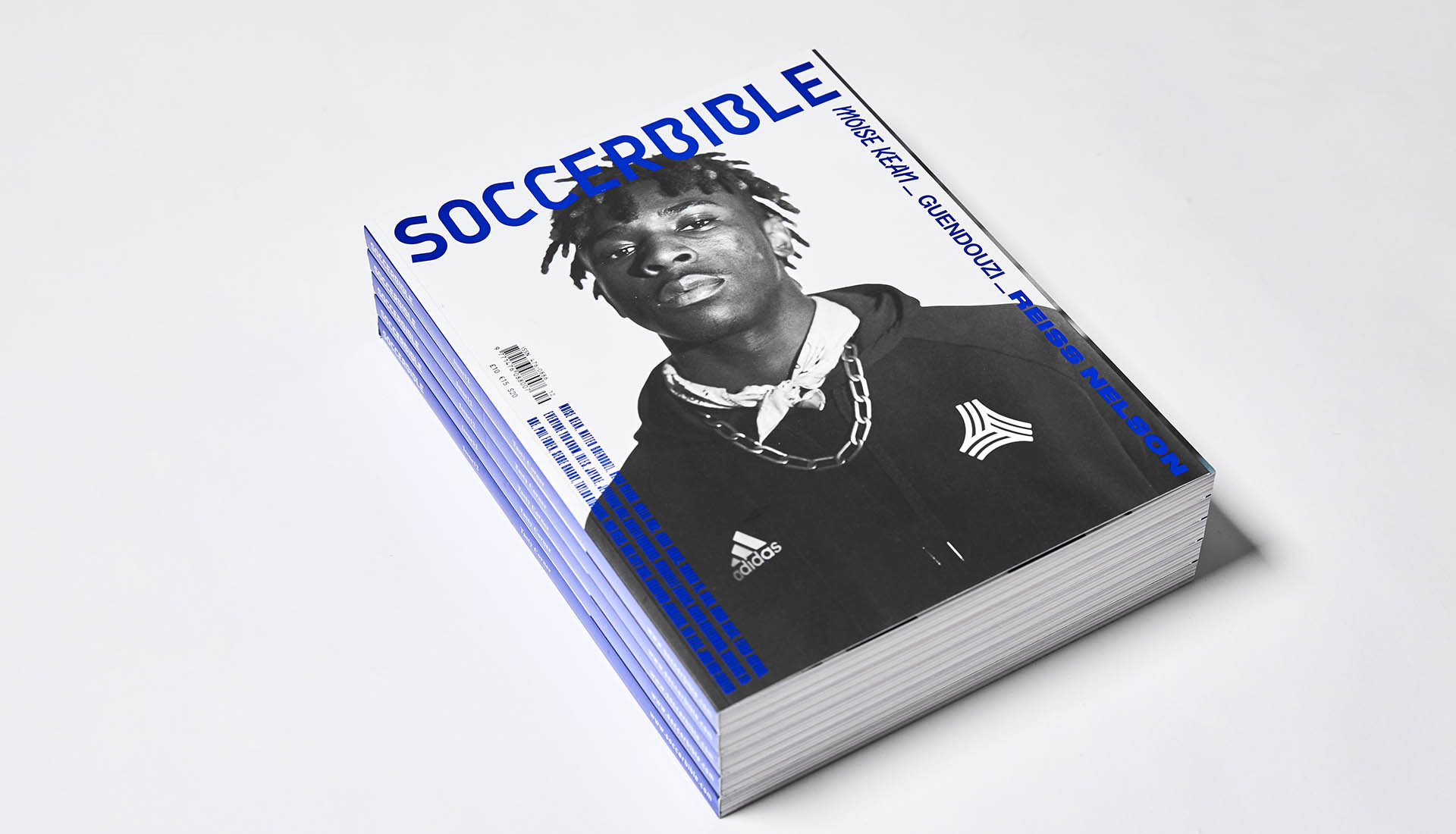
Read the full interview with Diogo Dalot in SoccerBible Magazine Issue 12, which you can get here.
Photography by Jake Millers for SoccerBible.
